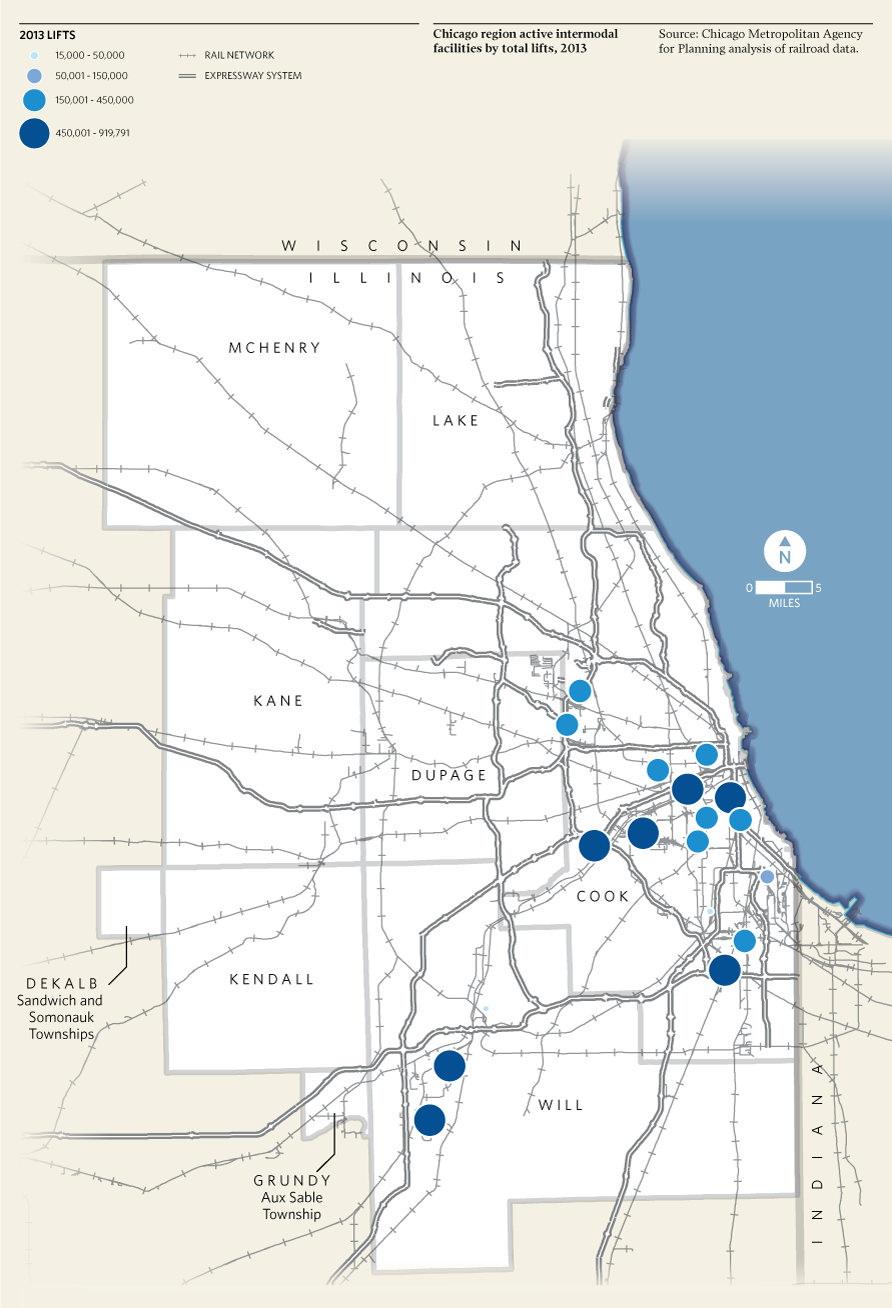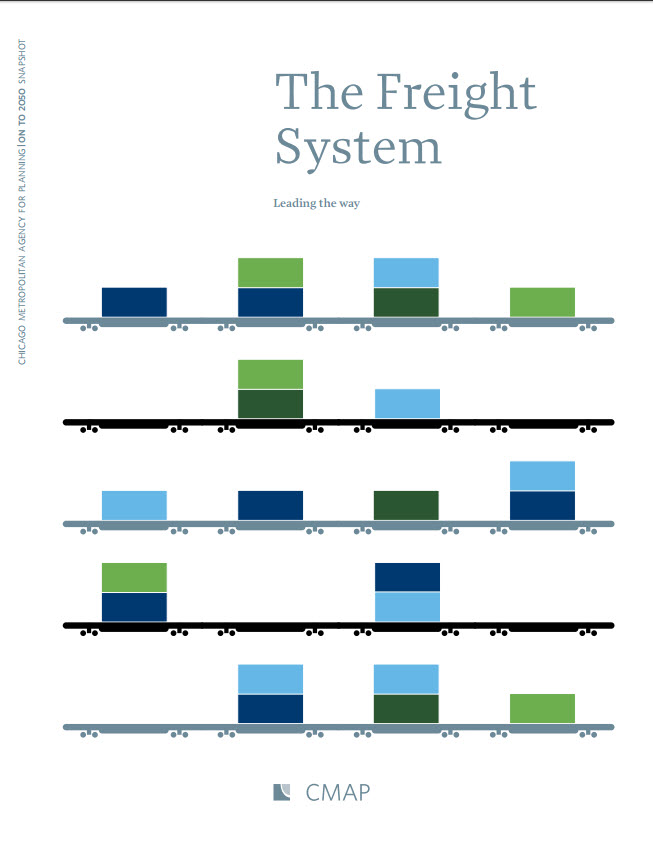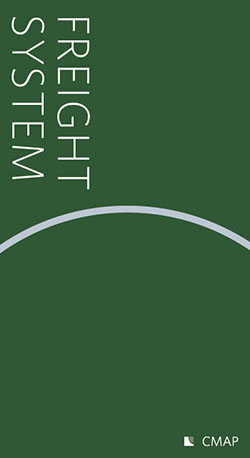Freight System
Freight System
Update: The Freight System: Leading the way ON TO 2050 Snapshot is now available, and your feedback is welcome. Please send your thoughts, ideas, or questions to ONTO2050@cmap.illinois.gov.
Metropolitan Chicago is the nation's freight hub.
An unmatched combination of freight transportation modes and infrastructure has contributed to the region's position as a hub for both domestic and international freight. A quarter of all freight in the nation originates, terminates, or passes through metropolitan Chicago. The region's concentration in intermodal moves is even more striking, with about half of the nation's intermodal shipments touching the Chicago area.
Freight is an economic driver of the region.
The region's concentration in freight provides substantial direct employment, with our freight cluster accounting for 200,000 jobs and over $13 billion in personal income for the residents of northeastern Illinois. The freight system touches almost every other economic sector and is especially pronounced in industries that rely on the frequent shipment of inputs and/or outputs, including manufacturing, construction, and retail trade.

Many challenges face the regional freight system.
Freight movements are projected to grow significantly in the coming decades. However, the freight system today already faces high levels of congestion and often operates on aging transportation facilities. And freight activity can have significant impact on the region's communities.
How ON TO 2050 can improve the freight system.
The region is in the process of developing a freight plan as part of the ON TO 2050 development process. This plan will include a detailed analysis of existing conditions, including the identification of locations in need of improvement and further study. The plan will also make public policy recommendations to promote more coordination among jurisdictions and prioritization of freight needs.
This is your plan.
Continual input by stakeholder organizations and individuals was vital to the development and implementation of GO TO 2040. From now through the next plan's adoption in October 2018 and beyond, CMAP will be engaging a broad cross-section of partners from across the region.
Take a moment to fill out the questions below, and for more information on CMAP's public engagement efforts, please visit www.cmap.illinois.gov/get-involved.

